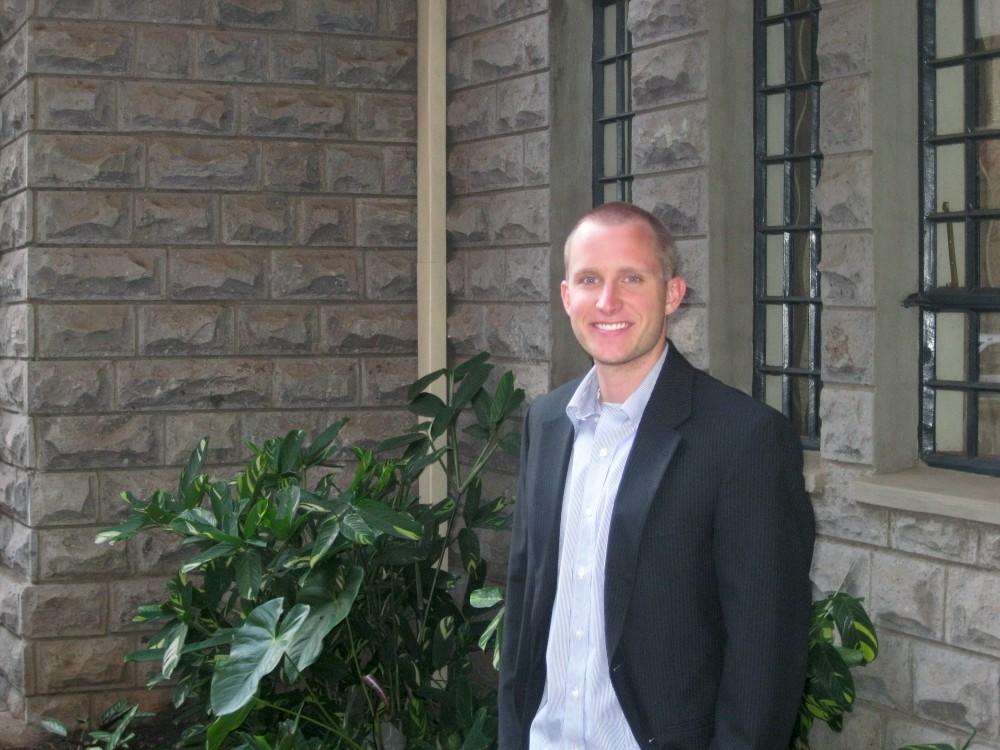Michigan sustainability efforts spread to Africa

Courtesy Photo / Kyle Denning Kyle Denning has been in Nairobi, Kenya since March 2010 overseeing Viability Africa. He is partnered with current Grand Valley senior Dan Kuiper in SEF.
Mar 13, 2011
Kyle Denning and Dan Kuiper, co-founders of Sustainable Energy Financing and Viability Africa are in business together to improve the future through renewable energy and resources.
“We highly value making sure we spend our time investing in things that really help people’s lives for the better,” Denning said. “But we make sure we do this in a profitable way for ourselves and the people we work with. We feel this is true sustainability.”
Denning, a Jonesville, Mich., native, graduated from Grand Valley State University in 2008 with a degree in international business and finance. After graduation Denning worked for a company called Viability, where he provided renewable energy consulting.
SEF and Viability Africa help promote these sustainable projects by finding grant programs, tax credits and financing for the clients involved with the projects.
Kuiper, a Holland, Mich., resident and a 35-year-old senior at GVSU, said his ability to impact the future is part of his motivation to push renewable energy and sustainable projects.
“I have three children right now, and I want them to have a place to live when they grow up, quite honestly,” Kuiper said. “I don’t think the current way we utilize our resources is sustainable. I’m not designing wind turbines, I’m not manufacturing solar panels, but I am contributing to the implementation of a broader adoption of renewable energy technologies. That’s the primary motivator.”
It is this strong dedication towards the cause which Kipper feels lead to the purchase of Viability with Denning. Following the purchase of Viability, Denning moved to Nairobi, Kenya in March 2010 to set up and operate Viability Africa, while Kuiper remained in Michigan.
In Africa, Denning and Kuiper both say the opportunities for SEF and Viability Africa could be huge. According to Denning, of the 42 million that live in Kenya, about 30 million do not have access to electricity, which makes Africa well-suited for renewable energy.
“I’m living in Nairobi. It’s a very modern city,” Denning said. “But that’s in Nairobi. As soon as I get out of the city, that’s when everything changes. There are areas that have no power. There is just not a grid that exists to deliver power. There are a lot of villages that don’t have access to consistent energy sources, and hence our job here has so much potential.”
Some of the projects Viability Africa is striving to achieve are wind farms and solar farms. Also, Denning hopes the company can expand throughout the continent. It currently is involved with three countries: Rwanda, Uganda and Kenya.
“It’s important to take a risk in a new market and just try and make a difference,” Denning said. “There is just so much opportunity here, and it was the right thing to do. We are so fortunate in the States that every time I flip on a light switch or turn on a television, I have power.”
Although both Denning and Kuiper said Africa provides many positive opportunities, the distance has its drawbacks.
Denning is 7,916 miles away. Because of the time difference, the two can only talk twice a day. When one is waking up, the other is preparing for bed. They connect via cell phone, Skype or instant messaging at 7 a.m. and 10 p.m. daily.
Although they may be separated by the Atlantic Ocean and can only speak to each other briefly, Denning said they will always carry the same goal to improve for the future and to set an example.
“If you are really passionate about making a difference in the world, get your hands dirty,” Denning said. “Going out, doing it and taking a risk is what’s going to make a difference.”

























